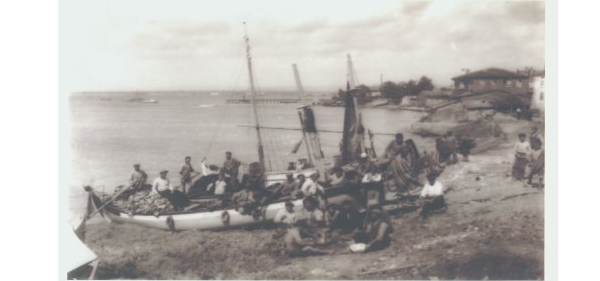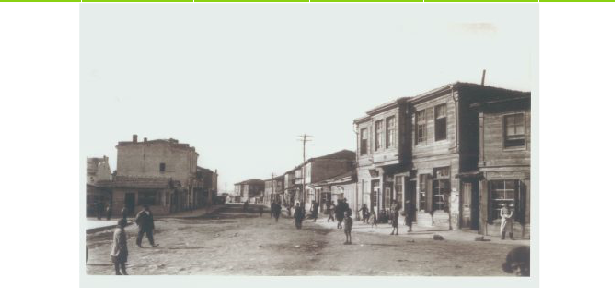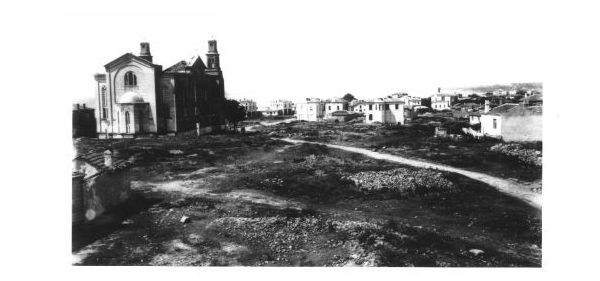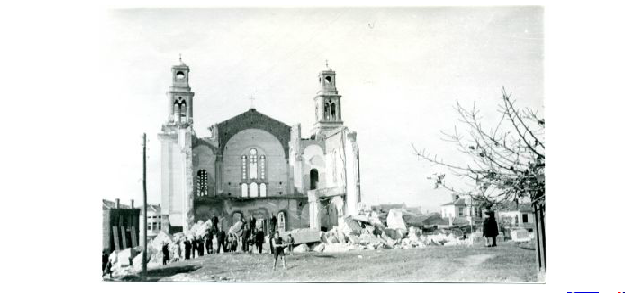Anhialo (now Pomorie)
The situation of the areas where a small number of Bulgarians lived significantly complicated after the defeat of Greece in the war with Turkey in 1919-1923. In the last months of the war when it became clear that Greece would lose it and after the signing of the peace Treaty of Lausanne, hundreds of thousands of Greeks emigrated from western Asia Minor, where they had been living for thousands of years, from the time of the Trojan War, and went to Greece. The Greek government tried to settle these migrants among the Bulgarian populations. The goal, of course, was clear, namely to change the ethnic composition of the area and it really changed. After 1923, the majority of the populations everywhere in today's Greek Macedonia and Western Thrace were already Greek. An additional tool to remove the Bulgarian populations was the Mollov-Kafandaris Agreement that provides for an exchange of populations.
Accordingly, what was the fate of the Greek populations in Bulgaria during the same period?
In Bulgaria, there has always been a relatively smaller number of Greeks than Bulgarians in Greece. The liberation found around 60-70 thousand Greeks and there was a process of constant emigration from Greece to Bulgaria. The Greeks in Bulgaria lived in several enclaves. One was the area of Plovdiv and Stanimaka, the second was the Black Sea coast and the third the area around today's Topolovgrad and Elhovo.
The anti-Greek pogroms in 1906 gave a strong momentum of Greek emigration from Bulgaria. There were no anti-Jewish pogroms in Bulgaria but anti-Greek, unfortunately. In 1906, the anti-Greek pogroms totally burnt the booming Greek city of Anhialo at that time, now Pomorie.

 Photos: zarariswines.gr/history.html
Photos: zarariswines.gr/history.html
The relations between Bulgaria and Greece were never good just because of the history of church and cultural relations, then followed the struggles in Macedonia and especially what happened in 1905, when the Greek andartes, guerrillas, attacked the Bulgarian village of Zagorichane, in the region of Kostur, where Dimitar Blagoev was born, and killed several dozens of people, including men, women and children. This provoked anti-Greek demonstrations in Bulgaria that occurred over several months in the summer of 1906.
Varna citizens refused to accept the Greek bishop sent by the Ecumenical Patriarchate. According to the decisions of the Treaty of Berlin, the Greek parishes in Varna and Stanimaka remained subject to the Ecumenical Patriarchate. The Bulgarians seized the property of the Greek Church in Varna and expelled the bishop. In Plovdiv, they conquered the Greek churches in the old city and turned them into Bulgarian ones. The most significant conflict was in Anhialo, where it is not clear even to this day, who fired the first shot. However, the Greeks from the city barricaded themselves behind the walls of the monastery that was in the outskirts of the village, a house was on fire during the fight, there was a wind and the whole city was on fire too. It was a wooden city and it actually burnt.


Photos: zarariswines.gr/history.html
It was after these conflicts that a strong wave of emigration started from Bulgaria to Greece.
There are no innocent people in both countries, but I have always been opposed to measuring who was more brutal, uncivilized and uncultured. No matter who behaved in that way, it is important that the manners of both countries were uncivilized and uncultured, and that they oppressed their subjects, who did not belong to the dominant nationality.
More than a century later, how do we perceive the Carnegie survey? Can it be accepted as a document that objectively presented the events? What is your response to the allegations that some of the participants in the commission were paid?
The participants in the Carnegie survey presented in their surveys what they had seen, the documents to which they had had access. Their situation was very difficult because in fact, Greece did not allow them to interview the participants in the wars on its territory nor to see the Bulgarian villages burnt, the Serbs did not accept them on Serbian territory either. What they were able to see was mostly Eastern Thrace because the Turks allowed them to, and the lands that joined Bulgaria after the Balkan wars. They talked mostly with refugees. When talking to refugees, clearly each individual story is evocative but that does not mean it is not true. Therefore, some of the pages in the Carnegie survey are very emotional.
Actually, the Carnegie survey wants to allocate the balance of guilt among the participants. They rather say that all countries behaved in an uncultured and uncivilized manner in this conflict. If they speak about a balance of guilt, they believe that the behaviour of the Greek and Serbian guerrillas was much worse than that of the Bulgarian rebels in the war.